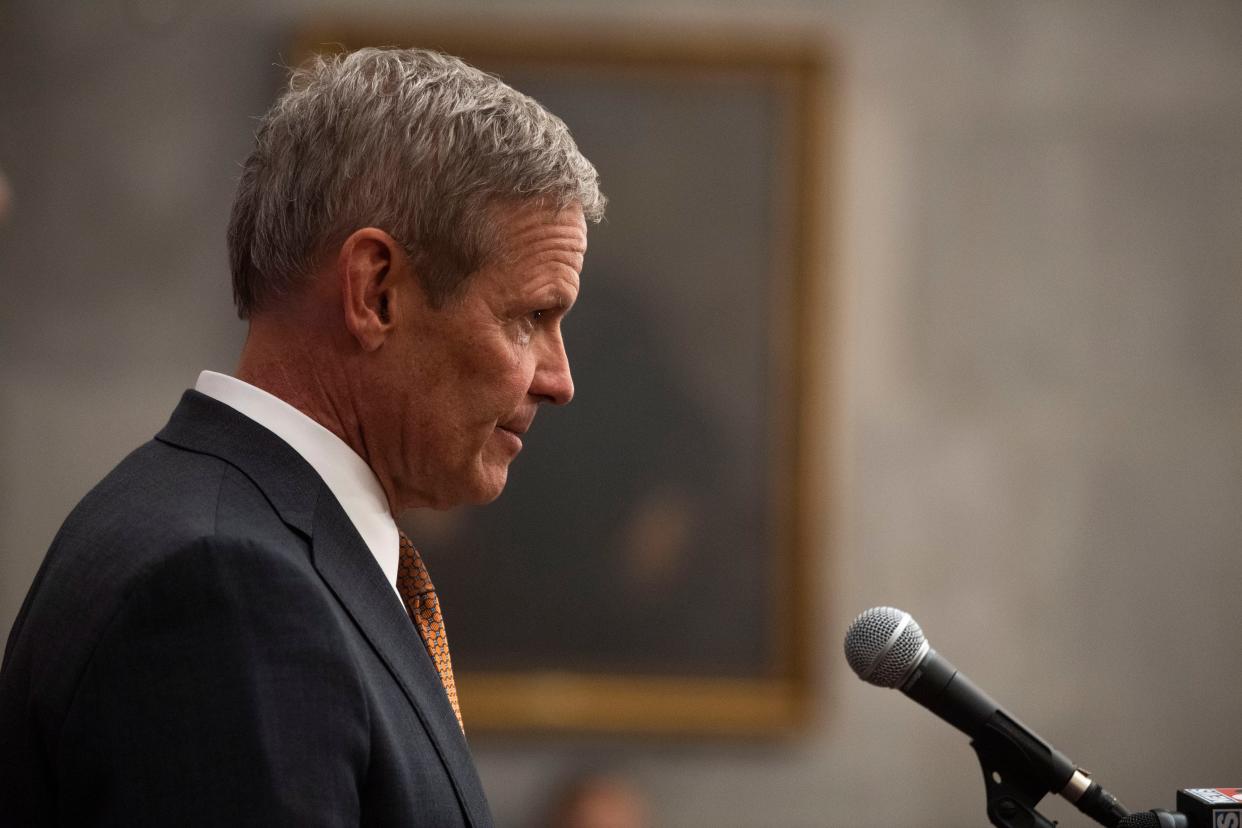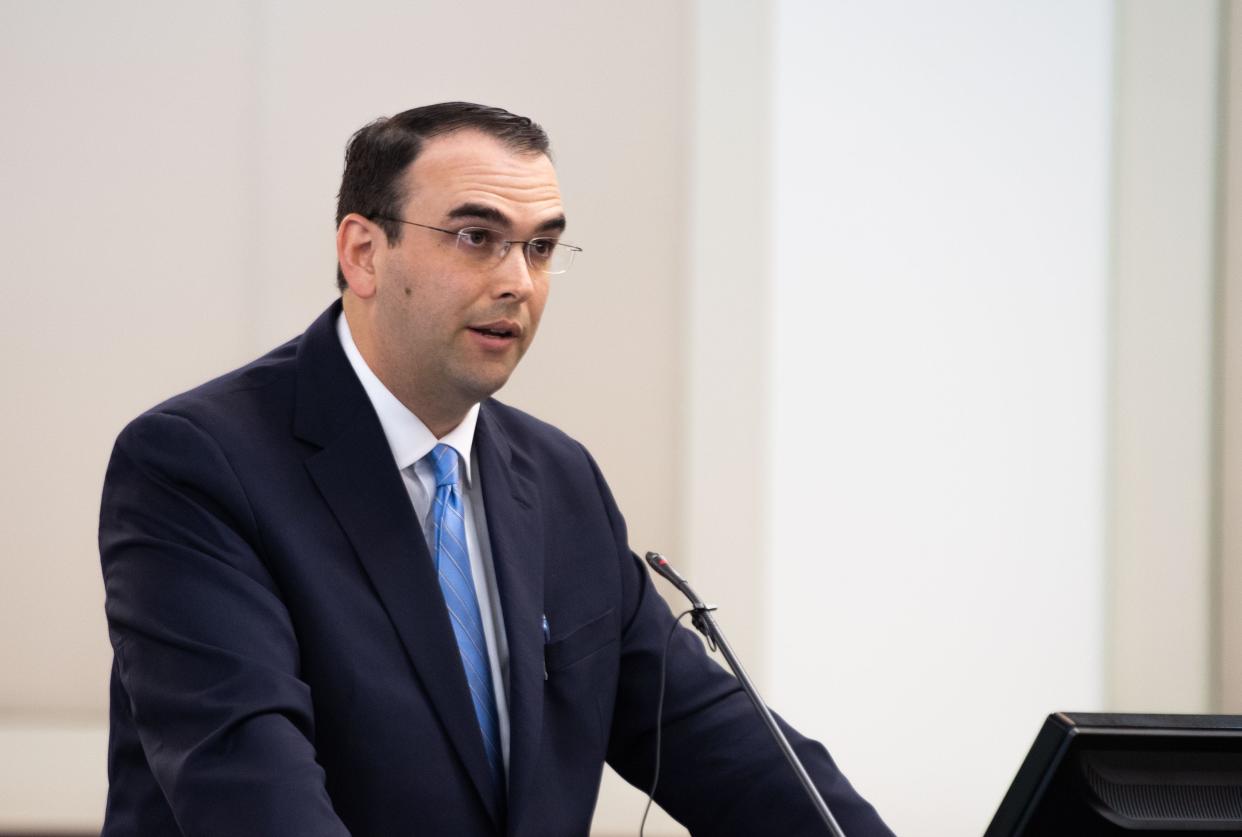Lee ends expedited clemency process for harsh drug-free school zone sentences
Gov. Bill Lee earlier this year quietly ended an expedited clemency program for those sentenced under a previous version of the state's drug-free school zone law.
Ending the program means offenders convicted under the old law — who were sentenced to years longer in prison than they would be today — have lost what may have been their most viable option to get out from under a sentence the state legislature felt was too severe.
Under the old law, those convicted of a drug crime within 1,000 feet of a school, library, park, day-care center or recreational center were subject to harsh mandatory minimum sentences even for first-time drug offenses. The Tennessee General Assembly changed the law in September 2020 to reduce the radius of a "school zone" to 500 feet and to restrict the application of harsh sentencing requirements to crimes when a child was put at risk.

Attorneys Ben Raybin and Daniel Horwitz said they have worked with people who were sentenced to about 15 years in prison under the old law's sentencing requirements when they would have received a two-to-three-year sentence otherwise.
In December 2021, Lee announced he created a process that would allow those sentenced under the old law to quickly become parole eligible through a grant of clemency if they would not have been sentenced as harshly under the new law. The process shifted the Board of Parole's typical role in reviewing applications to the Tennessee Department of Correction, but the board still had the final say in whether the offender was released.
Lee's office ended the program in January 2024, Lee spokesperson Elizabeth Johnson said in a statement to The Tennessean. While the change was posted to TDOC's website sometime earlier this year, it was not announced to the press nor to at least some of the attorneys whose clients were seeking expedited clemency.
“The expedited clemency process for certain drug-free school zone offenders was designed to be temporary and had accomplished its intended purpose,” Johnson said. “We trust the Board of Parole to provide a thorough review to all clemency applications.”
The administration’s early statements about the program did not indicate it would be temporary, and Lee's office did not respond to a specific question about why he decided to shutter the program.
No offender who sought expedited clemency through the program was denied, so under state law, all are still eligible to apply for clemency through the traditional process. Still, not all who applied were granted expedited clemency.
The traditional clemency process is one of the options offenders still have to reduce their sentences, although that process can take years, Horwitz said.
Lawmakers also created an avenue for offenders to petition the courts they were convicted in to reduce the length of their sentences. Judges have full discretion over when to grant those petitions, so this option works well with some judges and jurisdictions, including Nashville, Raybin said.
Some judges are not so agreeable. Horwitz's client Wayne Potee's petition was denied, and an appeals court told Horwitz he had no right to appeal that decision. After Potee applied for expedited clemency through the governor's process, TDOC's general counsel told Horwitz on Jan. 4 that the application should go to Lee's office that day.

"Minimal as it was, the Drug Free School Zone clemency program was among the only positive things that Lee has done for criminal justice reform during either of his two terms as Governor," Horwitz said in a written statement to The Tennessean. "Ending the program prematurely and without notice to anyone — particularly after applicants like Wayne Potee were already approved under it — is a betrayal."
At the time the program was announced in 2021, 335 people were incarcerated for drug-free school zone offenses committed prior to September 2020.
In 2022, Lee granted immediate parole eligibility to 30 people under the expedited pathway. Last year, there were no drug-free school zone offenders included in his annual clemency announcement. A month later, Lee’s office officially shuttered the expedited pathway program.
Evan Mealins is the justice reporter for The Tennessean. Contact him at emealins@gannett.com or follow him on X, formerly known as Twitter, @EvanMealins.
This article originally appeared on Nashville Tennessean: Tennessee drug-free school zone law: Lee quietly ends clemency program
